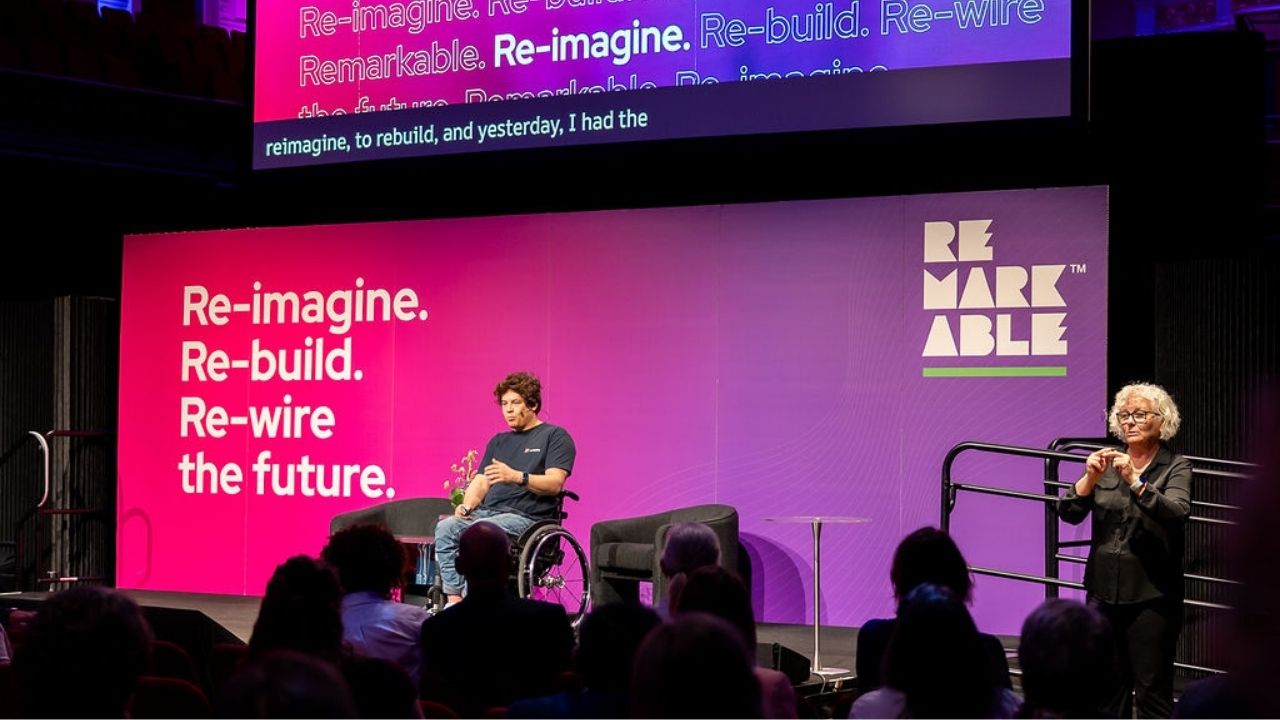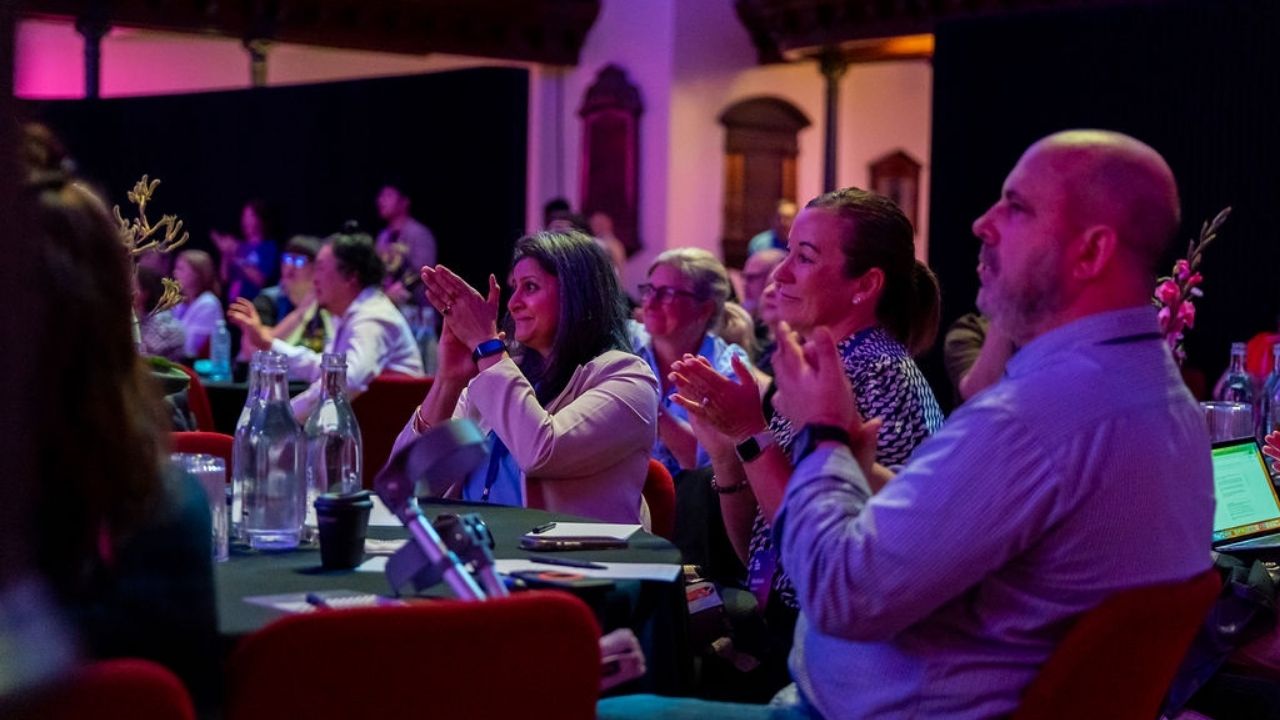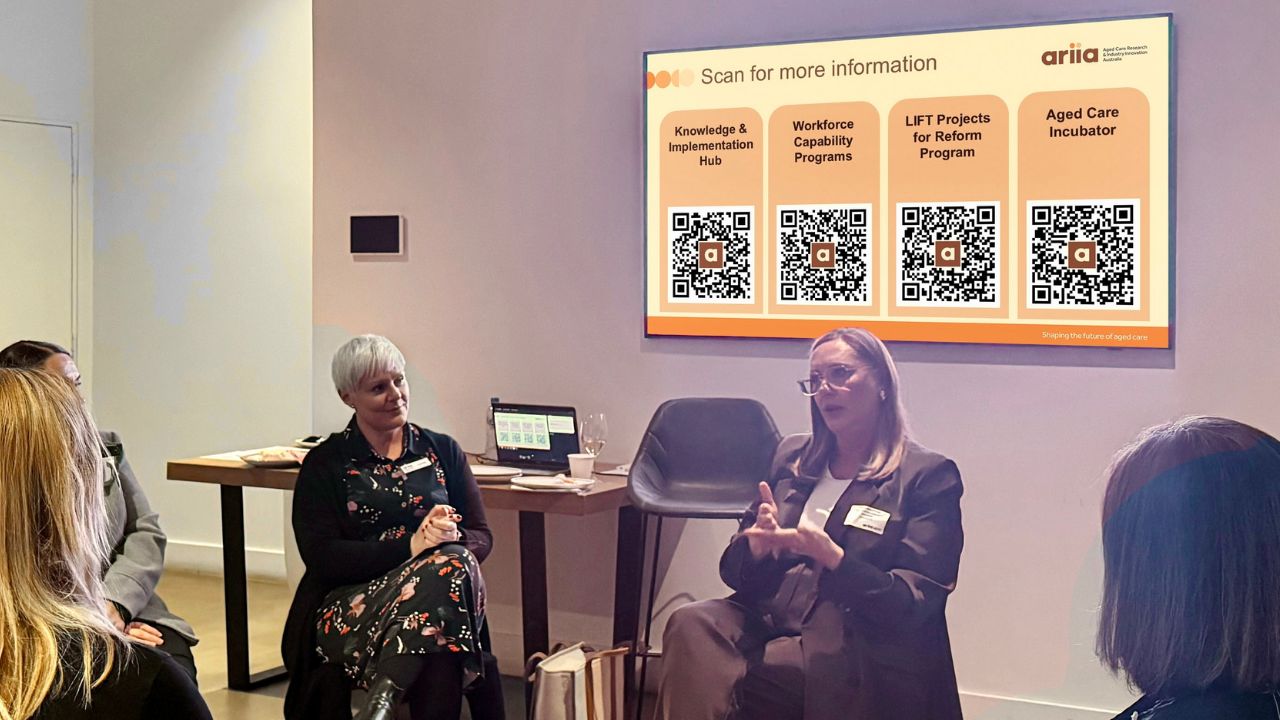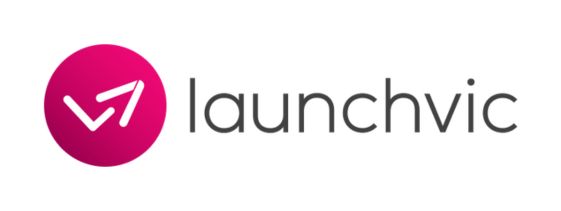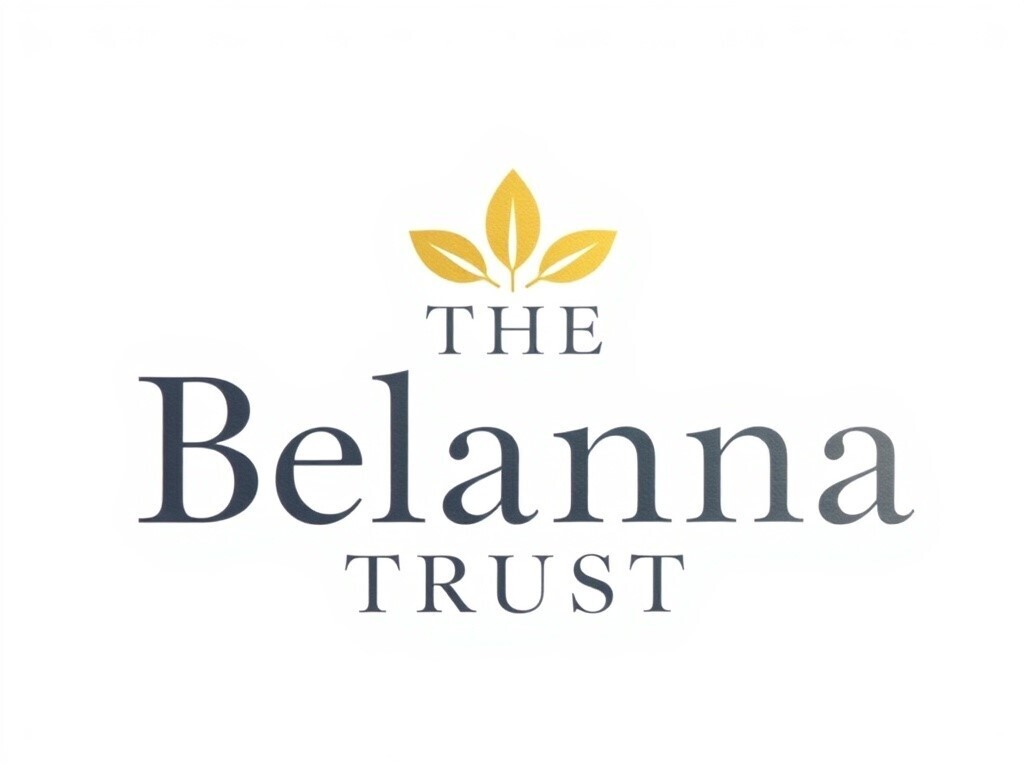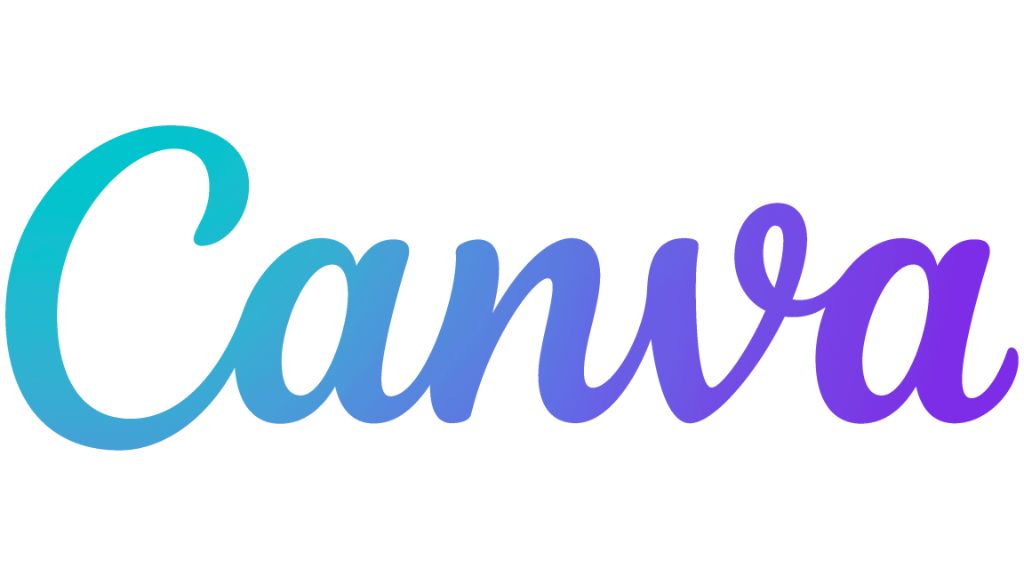
At our 2024 Remarkable Accelerator Global Demo Day, Digital Marketing Manager Kirilly Conroy connected with Entrepreneur-in-Residence and founder of Sociability, Matt Pierri for a conversation full of insights.
Sociability, a Disability Tech startup, helps disabled people to find accessible places and peace of mind to explore the world around them. In this Q&A, Matt shares his journey, invaluable lessons and advice, and what he hopes for the future of Disability Tech. Check out the Q&A below!
What's one thing that you wish you'd known when you started Sociability?
It definitely would have been helpful to have an understanding that, like a lot of people, it’s a case of "fake it until you make it." I think when you’re an accidental founder, you have this sense of imposter syndrome - that you don't know what to do, or you don't have a plan, or you've never done this before. And for the most part, it's fine to navigate like that. It gives you a lot of comfort to know that most people are also making it up as they go along.
For us at Sociability, having a very clear sense of why we’re doing what we do and who we’re doing it for has been the most important thing - even if the plans have to change all the time.
Is there a destination that you really would like to be accessible?
Personally, I think of places like night clubs and bars - that have a fun, party-nightlife. These places always feel harder to access as a disabled person, partly because they're not the world's most accessible spaces and partly because of the stigma around those environments. You don't normally see lots of disabled people in those spaces. I have a personal soft spot for people being able to join nightlife, because that’s where a lot of fun happens. But for a lot of people, even if they can access these places, they often feel a lot of stigma.
With restaurants, cafes and bars, it's more about finding the right places. But for those other nightlife environments, where there's an added level of insecurity, which we'd love to be able to break.
What trend do you predict will happen in Disability Tech within the next decade?
Lot’s of things are happening, which I think is very exciting! I'm very keen for the mainstreaming of Disability Tech to take place.
It’s great that Disability Tech is getting more attention, and that "Disability Tech" is now something we can talk about, measure, and quantify as its own sector. But ultimately, my ambition - for both Sociability and Disability Tech more broadly - is that it’s built into the fabric of the tech we create all the time.
Disabled people use lots of tech, just because you're disabled doesn't mean you need a different phone or a different car or you go to a different restaurant. I would like to see Disability Tech really become embedded throughout everything we do, and accessibility is just a part of the process of building a good product and service.
How do you navigate common expectations and norms that may not be accessible in the startup world?
A lot of what we do at Sociability, and more broadly in educating people and raising awareness around disability, is getting people to question why something exists or at least why we have certain things as the expected standard.
One of my personal pet peeves is at an event, people say ‘Please stand to show your respect’. I always think - who has decided standing is the mark of respect, and has anybody actually ever queried why we've decided that? Now it's evolved to be ‘If you are able to stand, please stand’. But I think the point is, there’s still this assumption that standing is somehow more respectful than being seated.
In those environments we encourage people that before you say something that is taken as read, actually enquire as to why you have that, or where that comes from. Sometimes there might be a good reason, but you could probably find another way to do it.
A lot of the time these standards are created by non-disabled people and geared towards a view of the world that typically doesn’t include disabled people. I’m sure there’s plenty of advice out there for disabled people, we just don’t get the same visibility on it.
Part of our challenge is how do we spotlight and shine lights on people who are talking about this - in a more kind of thoughtful and varied way - who otherwise might not be in the mainstream media or channels.
What advice would you give to Disability Tech founders new to this space about the importance of lived experience?
When it comes to advice, I'm particularly biased but I do think that lived experience is important. Partly because any entrepreneur who's trying to solve a problem really needs to understand the problem, as well as your users, if not better.
The challenge is if you are solving a problem that is conceptual to you in nature, then the chances of you coming up with a solution that's better than everything else that exists are fewer. The reality is in an early stage startup you spend a lot of time pivoting and you have to really be responsive and open to realising when something is not working because it's not solving the problem. If you're not anchored to the question ‘is this a solution that will work?’ it's a lot harder. It’s not that you can't empathise with the problem you’re trying to solve but if you experience it, it’s a little bit easier than if you have to go and ask someone to explain it to you.
That said, the challenge of being a disabled founder with lived experience is that your lived experience might blinker you to the solution, and what works for you might not work for everyone else. You have to work to make sure you're not just solving just for you. Because one disabled person is just one disabled person.
For people who aren't disabled they really have to work very hard to over emphasise this. You not only have to really make sure you're constantly getting that feedback into every part of the business and process but you have to do it broadly. So again speaking to one wheelchair user is insufficient - if you're one wheelchair user, that's the only comment you can make about one wheelchair user.
The challenge of disability is it’s so broad, so it really becomes a constant full-time exercise in user engagement and user participation.
Another challenge is in the Disability Tech space specifically people care about this because it relates to their life. If you're not disabled you also have to recognise this is a space people really care about and you have to match that level of empathy, it's definitely possible but it takes a lot of work.
Following on from the previous question, what strategies would you suggest for these Disability Tech founders to foster genuine and meaningful engagement of people with lived experience?
In terms of strategies the first thing is to really understand you're not going to be an expert and everyone's experience of disability will be different. Founders will never get to a point where they have all the answers, so you constantly have to be interrogating and asking questions - you have to ask, and then listen. I think unfortunately a lot of disabled people are in the space where people ask a question, you provide an answer and they either tell you that's wrong or overrule it.
We have found that social media (for all its faults) is quite a good way for people to learn about disability in a very unfiltered, unbridled way because it's quite candid. Following a lot of disabled people online and on social media is a very easy way to get a breadth of their kind of experiences.
The reality is, we just need to talk about disability more broadly and also not in the kind of the “disability topic on the agenda” way. We need to talk about disability and accessibility in everything - when we are thinking about the company's leave policy, target customer, redesigning the office etc - it shouldn't just be when you get to the disability topic on the agenda item. If we do that and make it embedded throughout everything, that will make it a lot easier for us to increase this sort of empathy in an authentic way.
In Season 1 of the Remarkable Insights Podcast you mentioned the spending power of people with disability, could you explain what you mean by this and have you noticed any changes over the years?
There's definitely a growing awareness of this, in terms of how people make decisions. However, I think accessibility is something that historically has been stuck in this mindset of compliance - you have to tick the box, presumably somebody won't tell you off and then you carry on and you are accessible. Which one, is not actually true but two, it means there's a sort of point at which you think about accessibility and then you stop.
For disabled people accessibility isn't this “compliance thing”, it's a living breathing consideration. Every time I do something I have to wonder about the accessibility of it and that's something a non-disabled person typically takes for granted. The point is that that's how I make decisions and, to the spending power argument, if for example I'm in a group, unless that group is just going to leave me outside, that's how the whole group makes decisions.
I think the closest analogy we've seen in general cultural awareness around this is dietary requirements. Restaurants will now proactively list their information about their dietary requirements and options they have on the menu because they know if you have 10 people in a group and there's one vegan, then they won’t go to a steak place where that person is going to sit and watch. Instead they will all go to a place that has a bunch of options that's suitable for everybody and this is the same logic that applies to accessibility.
Once we start to break this stigma that accessibility is like a 'set-and-forget point in time consideration' everybody will realise that it's actually much more fundamental to their business, their workplace or their education environment, whatever it might be and not just for that single person but for their whole social network. I think hopefully that means it's becoming a societal issue and not just like the burden put on the individual who has a particular need.
Want to learn more about Matt?
Check out some recent lessons he shared and tune in to his episode of the Remarkable Insights Podcast!



.png)
.jpg)


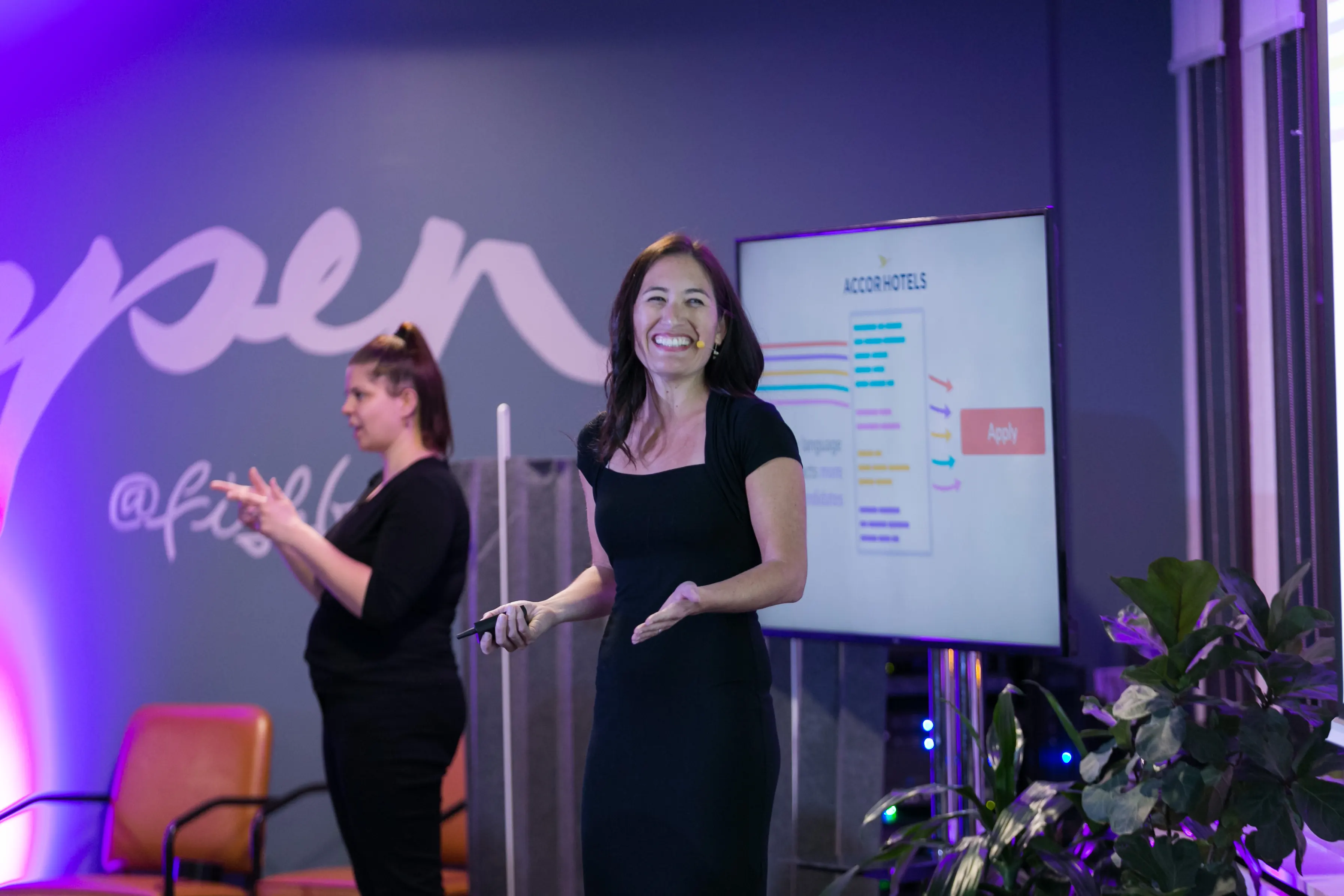

.jpg)
